North Korea
One week into my North Korean journey I have explored Pyongyang’s vibrant districts and small mountain villages in the nation’s interior. Next on our schedule is to drive to Hamhung, Majon, and Wonsan to photograph the remote coastal regions of North Korea. These regions are famed for their deserted white sand beaches, and small fishing communities. From the Coast, my journey took me into the controversial DMZ, and finally back into the mountains to hike to Buddhist temples at Mt Myohyangsan. North Korea is quite the epic adventure!
North Korea’s Remote Northern Coastal Regions
Pulling into Wonsan after hours of driving through the mountains is blissful. The cold mountain breeze is replaced with the warm humid temperatures of North Korea’s Northern Coast. Our bus stopped here so we could explore Wonsan on foot. Locals were surprised to see us here, but everyone greeted us with a smile, I even had a soldier riding a bicycle passed me yell “welcome, don’t be scared”.
Nearby to Wonsan is some incredibly remote beaches in which we traveled to try our hand at surfing. Small communities here are very laid back, and gives a great insight to the life a North Korean Fisherman.
About three hours north of Wonsan is Hamhung and Majon beach. This region is relatively close to where North Korea tests its missiles, so security is tighter, but no one seemed to mind my presence as a Canadian photographer!
The rugged and mountainous North East coast of North Korea, near Wonsan
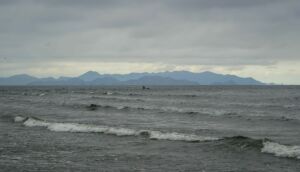
Wonsan port, local fisherman casting off the restaurant we ate at
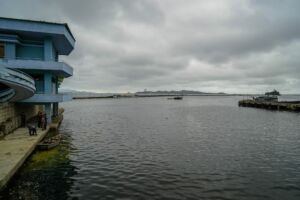
These murals of the Great Leaders can be found everywhere in North Korea – Wonsan
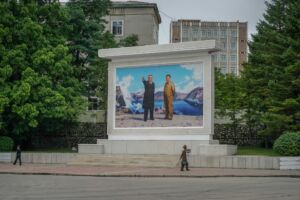
Walking down to the Harbour in Wonsan City, North Korea
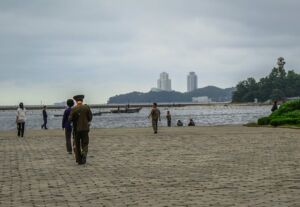
Downtown the sleepy fishing city of Wonsan, very few travellers make it here
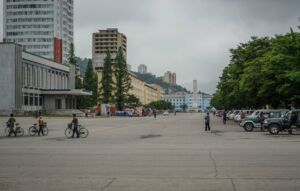
Wonsan’s Port – Ferries used to go from North Korea to Japan
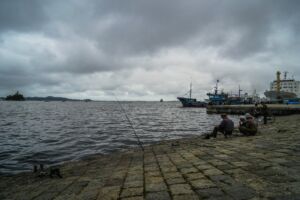
Elderly men fishing at Wonsan’s Port
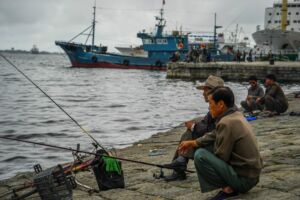
Small lake near Sajon Beach, 100km south of Wonson, North Korea
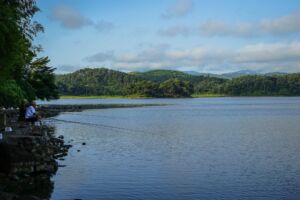
Picture I took while out on the Lake near Sajon, North Korea
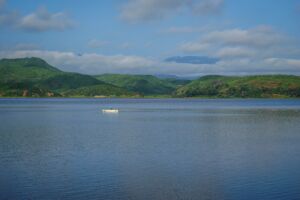
Kids crossing the lake at Sajon to get to the nearest school
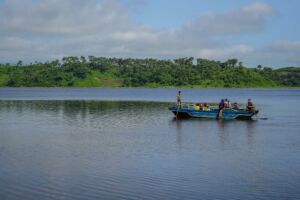
Abandoned boat/beach in Sajon. Went surfing here!
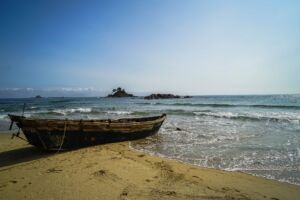
Surfing at Majon Beach, Yes we went surfing in North Korea!
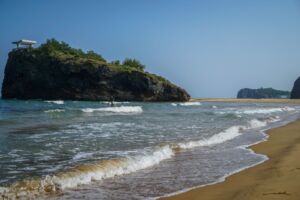
Crossing guard in Hamhung City
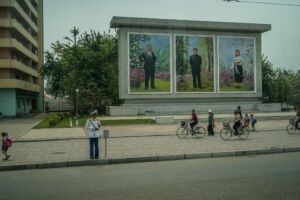
The “Cheerleaders” in Wonson. Most are widows who are paid to cheer.
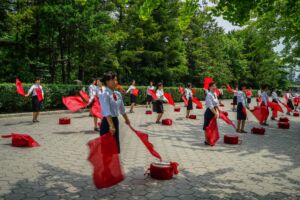
Great Leader Monuments down town Hamhung, its only acceptable to photograph as long as you get the whole leaders in the photo
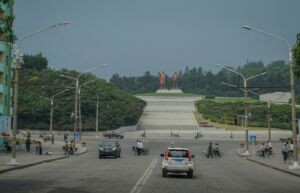
Small city on the outskirts of Hamhung
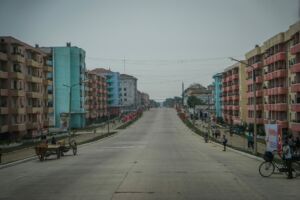
Propaganda in the small city outside Hamhung, truly off the beaten track North Korea
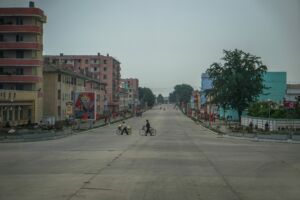
Majon City alongside Majon beach, North Korea’s premier beach destination
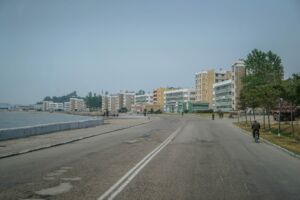
The Beach outside our hotel in Majon
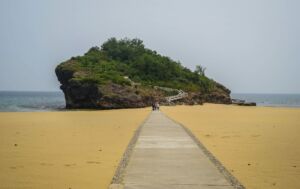
Rare look into Majon city, not to many travelers make it this far into North Korea’s remote North East
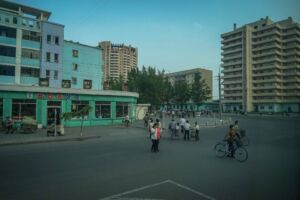
Me surfing at Majon Beach, we also trained plenty of North Korean’s on how to surf and stand up paddle board
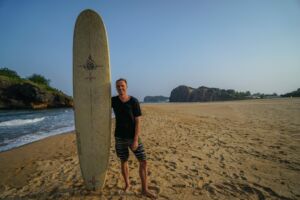
North/South Korea Border – The DMZ
Leaving the coast behind us we headed south to the DMZ (Demilitarised Zone). The DMZ is the controversial border between North and South Korea. Having been to the South side I was excited to see the Northern version.
On the DMZ a military escort was given to show you the history and sights on the border. The military escort was very fond of asking me about my thoughts on current politics and what my country thought about North Korea. It was refreshing to be able to have an open conversation, even though our opinions didn’t match. We took a photo together and he shook my hand, it might not be the answer to world peace, but at least a Canadian photographer and a Military man in North Korea could communicate with one another respectfully.
We could not stay long on the DMZ as this is one of the areas North Korea doesn’t let you explore too much of.
Photo op with my military escort after a discussion in world politics on the DMZ
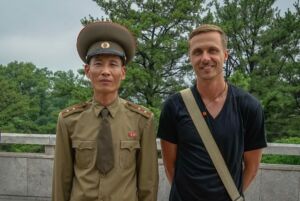
A sight you see throughout all of North Korea, pictures of the great leaders.
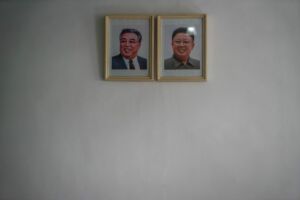
Our Military escort explaining the North Korean Version of the Korean war
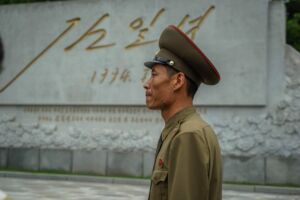
The DMZ border between the split Korea’s
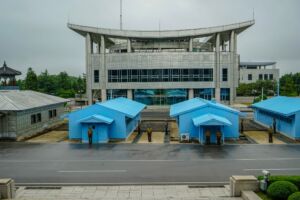
Kaesong City, located a few kilometres from the DMZ. Its one of the most historical places in North Korea and filled with temples and palaces
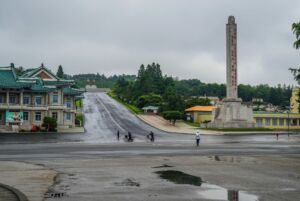
A traditional North Korean meal in Kaesong
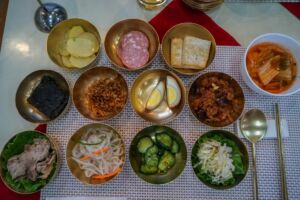
Local in Kaesong City, North Korea
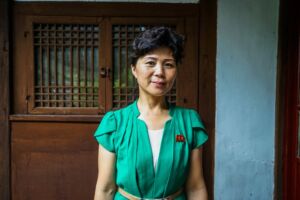
Traditional North Korean wedding in a part of the Kaesong Palace
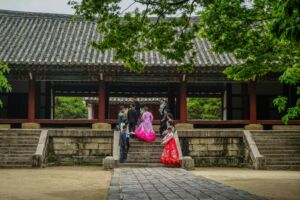
Hiking to Buddhist Temples at Mt Myohyangsan
From the DMZ we drove back to Pyongyang for the evening. The next few days were designated for exploring Mt. Myohyangsan and the Buddhist temples around it.
Driving North from Pyongyang the coast slowly disappears and the lush green mountains emerge once again. We entered the area and hiked through the mountains many trails which lead to various Buddhist temples. These days there are only a few monks left here, and the temples have more of a historical museum feel too them. Regardless, the setting they are in is beautiful.
Nearby to the temples was a museum dedicated to all of the sights that have been given to the Kim family. This massive museum was filled with everything from a train and armoured car from Stalin, to a Golden AK 47 from Gaddafi.
Resident Monk at the largest temple in Mt Myohyangsan
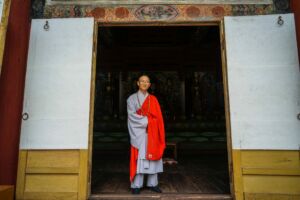
800 year old restored pagoda. suffered much damage during the Korean War
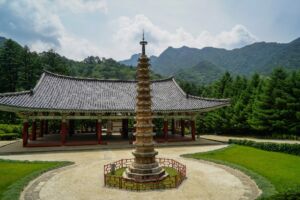
The entrance to the Monastery complex
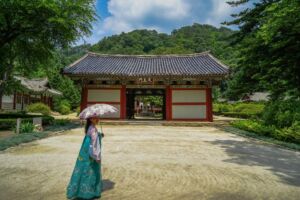
North Korean monk who takes care of North Korea’s Buddhist heritage
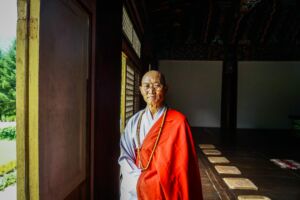
The Bizarre but fascinating museum of the Kim Family Gifts
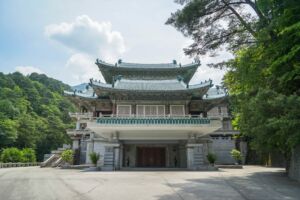
Who knew such beautiful sights and history could be found in North Korea
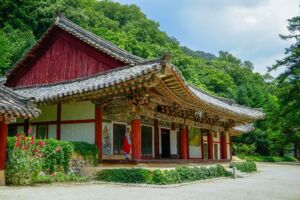
North Korea Photography and Restrictions
As in the previous post to this one many of my viewers had some concerns about my travel to North Korea, that I fabricate what I say to create a false image of North Korea. In my previous post I left politics out and as you will notice I did on this post as well. That reason is simple, I am a traveler, and I went to North Korea to gain my own perspective of the nation. Many of you will not agree with this decision and that is fine.
My goal with this post is to show people there is another Korea hiding behind all the politics and global issues. Obviously while I traveled in North Korea I wasn’t 100 percent free to do as I wanted, but I did have plenty of opportunities to explore areas that very few have been to.
So in saying this I encourage you to open your mind and hopefully one day we can put all our differences aside and travel together!
Uri Tours
My journey into North Korea was special. Most companies just give you the standard tour, but I chose Uri Tours which for many years has been working with North Korea to expand and show people more unseen parts of this hermit nation. If you want a unique trip to North Korea I highly recommend Uri Tours. Check their tours out here!


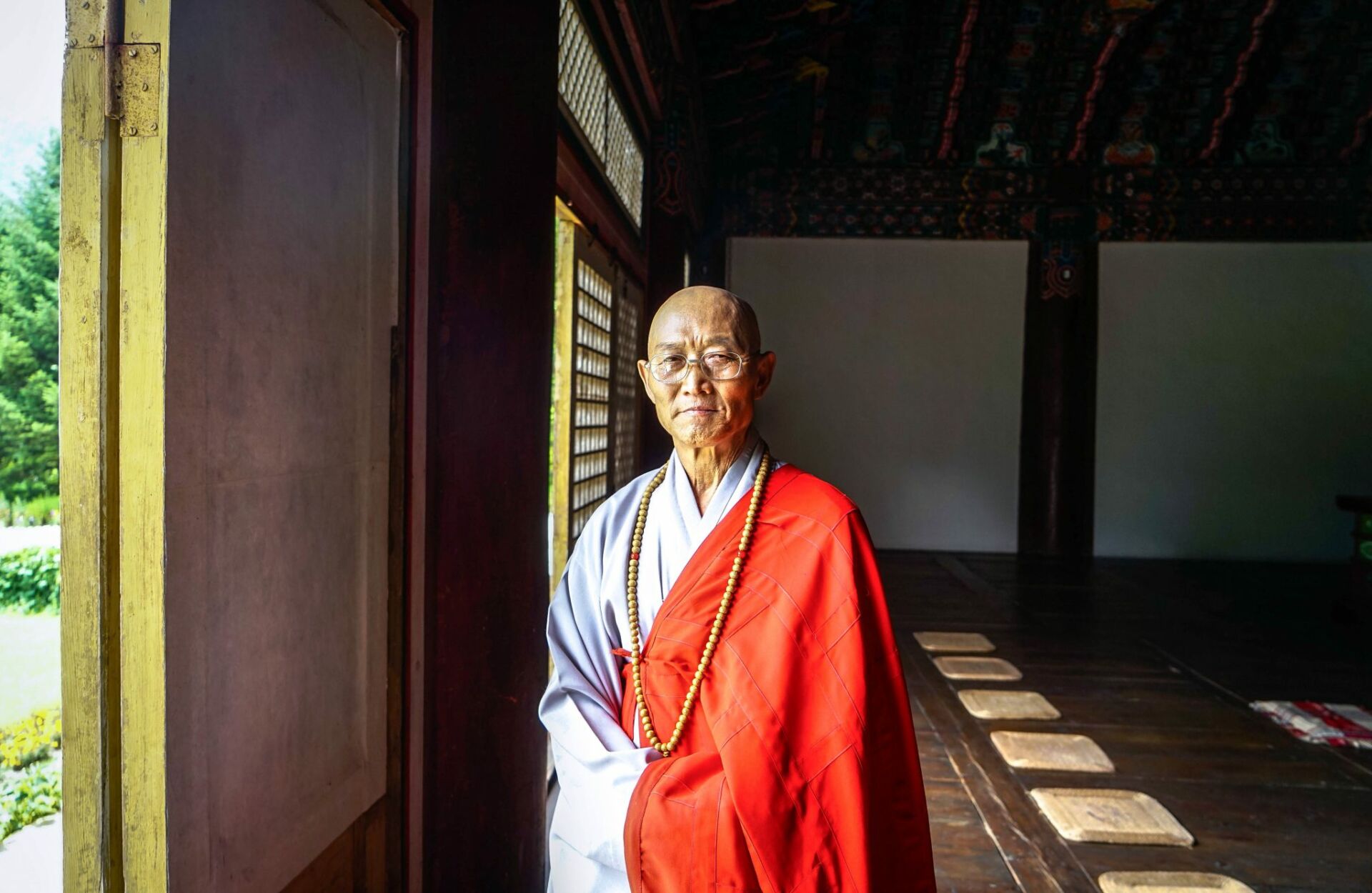
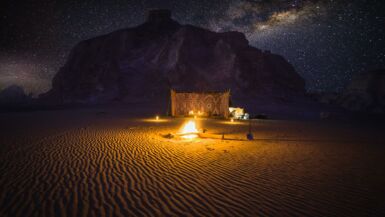
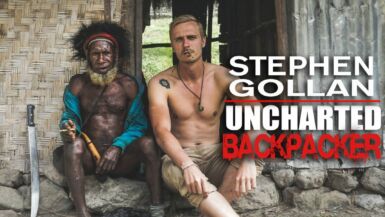
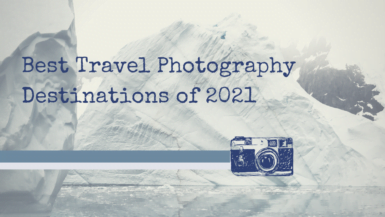
Great blog. Really nice information shared. Thanks for sharing the important points with us. – shirdi flight package from bangalore, nasik flight package from bangalore
https://myshirditrip.com/shirdi-and-nasik-flight-package-from-bangalore.html
Not much has changed since I was there 10 years ago … happy to see familiar places 🙂